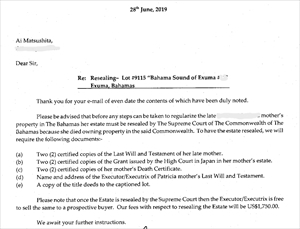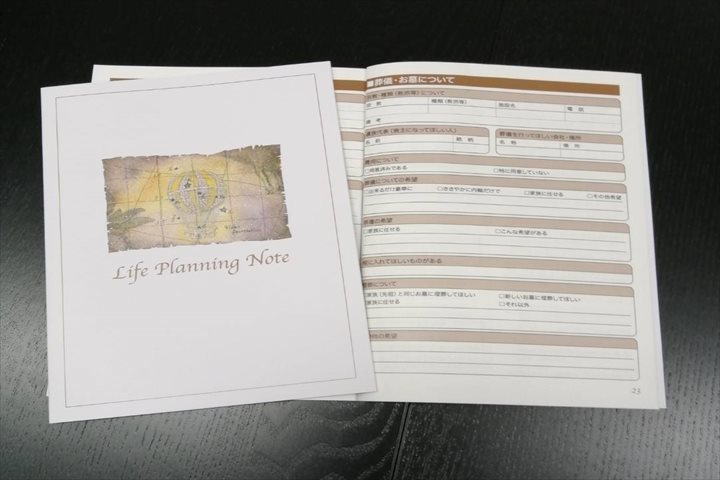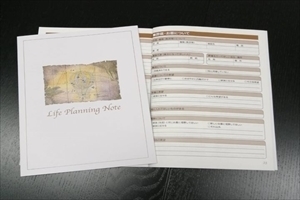在留外国人の遺言書
will of foreign resident
在留外国人の遺言書
日本で暮らしている外国人の方でも日本で遺言書を書くことができます。
外国人の方には、どこの国の法律に従うべきかという準拠法の問題があり、遺言の場合には
①方式
②遺言の成立および効力
が問題となりますが、以下の理由で結論として日本の法律が適用されるからです。
Even foreigners living in Japan can write a will in Japan.
For foreigners, there is an issue of which country's law should be followed. In the case of a will:
1)Formality, and
2)Formation and validity of a will
are the issues. The conclusion is that Japanese law will be applied for the following reasons.
準拠法の問題
Governing law issues
①方式の問題について
遺言の方式とは、書面で作成する必要があるか、口頭でもよいのか、証人の立ち合いが必要かなどについての問題のことです。
そして日本に滞在する外国人は、「遺言の方式の準拠法に関する法律2条1号3号4号」により、日本に住所を有する場合はもとより、旅行等で一時的に日本に滞在している場合であっても、日本の法律の規定する方式により遺言をすることができるとされております。
(1) Regarding the formality issue
The formality of a will refers to issues such as whether it needs to be made in writing, whether it can be made orally, and whether it needs to be witnessed by witnesses.
According to Article 2, Item 1, Item 3 and Item 4 of the Act on the Law Governing Formalities of a Will, even if foreigners staying in Japan have a domicile in Japan, or are temporarily in Japan for travel, etc., such foreigners may make a will in accordance with the form prescribed by Japanese law.
②遺言の成立および効力の問題について
遺言の成立および効力の問題とは、遺言能力や、遺言の意思表示の瑕疵、遺言の効力発生時期、遺言の撤回の可否など実質的有効性のことです。
これについては「法の適用に関する通則法37条1項」において、遺言者の本国法が準拠法となります。しかしその本国法で反致主義が採用されている場合は、日本法も「通則法41条」により反致主義を採用しておりますので、結果的に日本法を準拠法として指定することができることになります。
(2) Issues Regarding the Formalities and Validity of Wills
The issue of the formalities and validity of a will refers to the testamentary capacity of the testator, defects in the expression of testamentary intention, the time when the will becomes effective, and the practical validity of the will, such as whether or not it can be revoked.
The law of the testator's home country is the governing law in accordance with Article 37, Paragraph 1 of the Act on General Rules for Application of Laws (the “Act”). However, if the law of the testator's home country adopts the principle of res judicata, Japanese law can be designated as the governing law because Japanese law also adopts the principle of res judicata in accordance with Article 41 of the Act.
③相続について
なお遺言の結果なされる財産の処分等は相続の問題となります。そして相続についても「通則法36条」により被相続人の本国法によることとなりますが、被相続人の本国法でも反致採用されている場合には日本法が適用されます。
(3) Regarding inheritance
The disposition of property made as a result of a will is a matter of inheritance. Inheritance is also governed by the law of the decedent's home country in accordance with the Act.
諸外国の反致について

Renvoi in other countries
【欧州連合(EU)の構成国】
相続は被相続人の死亡時の所在地法に、また遺言の実質的有効性については遺言者の遺言時の住所地法によるべきものとされております。
したがって、これらの国籍の外国人が日本に住所を有していて日本で遺言を作成する場合には反致が成立し、遺言の実質的有効性および相続につき日本法が適用されます。
[Countries that are members of the European Union (EU)]
Inheritance is governed by the law of the domicile of the decedent at the time of his/her death, and the substantive validity of a will is governed by the law of the domicile of the testator at the time of his/her will.
Therefore, if a foreigner of one of these nationalities has a domicile in Japan and makes a will in Japan, the foreigner will be subject to Japanese law with respect to the substantive validity of the will and inheritance.
【英米法系の国(アメリカ、イギリス等)】
遺言の実質的有効性および相続は、動産については被相続人の死亡時の住所地法、不動産についてはその不動産の所在地法によることとされております(相続分割主義)。
したがってこれらの国籍の外国人は、動産(預貯金を含む)と日本にある不動産を遺言により処分するときは遺言の実質的有効性及び相続につき反致が成立し、日本法が適用されます。
[Anglo-American law countries (such as US and UK)]
The substantive validity and inheritance of a will shall be governed by the law of the decedent's domicile at the time of death for movable property, and the law of the location of the real estate for real estate (inheritance division principle).
Therefore, if a foreigner of these nationalities disposes of movable property (including savings accounts) and real estate located in Japan under a will, the substantive validity and inheritance of the will are subject to Japanese law.
【中国】
遺言の実質的有効性については遺言時または死亡時の遺言者の住所地法または本国法によるものとされ、相続については不動産はその所在地法、動産については被相続人の死亡時の住所地法によるとされております。
したがって、中国国籍を有する人が日本に住所を有しており、預貯金等を含む動産、日本にある不動産を遺言により処分するときは、遺言の実質的有効性および相続につき反致が成立し、日本法が適用されます。
[People’s Republic of China]
The substantive validity of a will is governed by the law of the testator's domicile or home country at the time of the will or death, while inheritance is governed by the law of the domicile for real property and the law of the decedent's domicile at the time of death for movable property.
Therefore, if a person of Chinese nationality has a domicile in Japan and disposes of movable property including savings accounts, etc., or real estate located in Japan by will, renvoi is established regarding the substantive validity of the will and inheritance, and Japanese law is applied.
【韓国】
被相続人の常居地がある国家の法、不動産の相続に関してはその所在地法を準拠法として明示的に指定した場合はその法によるとされております。
したがって、日本に住所を有する韓国籍の人が、遺言中で相続準拠法として日本法を指定したとき、また日本にある不動産の相続に関して所在地法である日本法を指定したときは反致が成立し、日本法を適用することができます。
[Republic of Korea]
The law of the state in which the decedent's habitual residence is located, or the law of its location with respect to inheritance of real estate, if expressly designated as the governing law, is said to be the governing law.
Therefore, if a Korean national with a domicile in Japan designates Japanese law as the governing law for inheritance in his/her will, or if he/she designates Japanese law which is the law of the state of domicile with respect to inheritance of real estate located in Japan, renvoi is established and Japanese law can be applied.
外国人が日本の遺言でできること
What a foreigner can do in a Japanese will
以上より、日本国籍を持っていない外国人の方でも、日本に暮らしていれば日本で遺言が書けます。
しかし次に、遺言に書く財産の内容、つまり日本で作成した遺言で実際問題どこまで対応できるかが問題となります。
前述のとおり、日本にある財産は、遺言者がお亡くなりになったとき遺言に書かれた通りに分けることができます。
しかし本国にある不動産については、国によってはその国の本国法が適用されることになります。
また日本法が適用される場合であっても、本国での手続きが必要です。
そのため、本国にある不動産については、本国の法律に基づいて遺言を作成するのが望ましいと言えます。
From the above, even a foreigner who does not have Japanese nationality can write a will in Japan if he/she lives in Japan. So, the next issue is the content of the property to be written in the will, i.e., to what extent it can be handled in a will made in Japan.
As mentioned above, property located in Japan can be divided as described in the will when the testator passes away.
However, for property located in the home country, depending on the country, the laws of that country will apply. Even if Japanese law is applied, procedures must be taken in the home country.
Therefore, it is advisable to make a will based on the laws of the home country for real estate in the home country.
公正証書遺言がおすすめ
A notarized will is recommended.
日本の遺言には主なものに自筆証書遺言と公正証書遺言があります。
自筆証書遺言については外国語で書かれたものも有効とされております。
しかし自筆証書遺言の場合は執行の際に家庭裁判所における検認が必要となります。
検認には、遺言者の出生から死亡までの戸籍を添付する必要があります。
外国籍の方の場合は、戸籍に相当する証明書を本国から取り寄せることとなり、手続きが困難になる可能性があります。
一方公正証書遺言は、日本語で作成しなければなりません。
そのため、日本語を解さない方には通訳をつけることが法律で決められております。
また外国籍の方であっても日本の遺言の方式により2名以上の証人の立ち合いが必要です。
しかし公正証書遺言であれば、検認は不要で、速やかに執行することが可能です。
外国籍の方が遺言の作成を検討なさる場合は、公正証書で作成することをおすすめいたします。
The two main types of wills in Japan are a self-written will and a notarized will.
A self-written will written in a foreign language is considered valid.
However, in the case of a self-written will, probate in the family court is required before the will can be executed.
The family register of the testator from birth to death must be attached for the probate. In the case of a foreign national, a certificate equivalent to the family register must be obtained from the national's country of origin, which may make the process more difficult.
On the other hand, a notarized will must be written in Japanese. Therefore, it is required by law that an interpreter be provided for those who do not understand Japanese.
Also, even for foreign nationals, the presence of two or more witnesses is required according to the Japanese testamentary procedure.
However, a notarized will does not require probate and can be executed quickly.
If a foreign national is considering making a will, we recommend that it be notarized.
外国人の遺言書の文例
遺言書
第1条 遺言者○○は、遺言者が有する一切の財産を遺言者の妻○○(生年月日)に相続させる。
第2条 遺言者は、日本に住所を有し、相続の準拠法として日本法を指定する。
2024年8月5日
国籍 大韓民国
住所 横浜市中区中町○○
職業 会社員
遺言者 ○○
1952年10月10日生
海外にある財産の相続

以前、日本在住のカナダ人Aさんからバハマにある不動産の売却という壮大なご相談をお受けしましたのでご紹介いたします (^-^)
バハマの不動産は、Aさんのお母様のご所有でお母さまは10年前に他界されましたが相続手続きはまだ済んでいないとのことでした。
そのため不動産を売却するためにはまずAさんが不動産を相続するところから始める必要があります。
バハマの相続手続きにつき現地の弁護士さんに問い合わせしたところ、まず遺言書の提出を求められました。遺言書はありませんでしたので、その旨を伝えたところ、遺言書がない場合の必要書類を教えてくださり書類が揃えば相続の手続きをしてくださるとのことでした。
しかし日本とバハマでは当然相続の仕組みが異なります。
必要書類は膨大な数に及び、中には日本には該当するものがない書類もありました。
替わりになる書類はあるはずですが、もう一人の相続人であるAさんの妹がギリシャ国籍ということもあり、この時点で調整に相当な労力つまり費用が発生することが予想されました。
一方バハマの土地は小さくて、現地の不動産屋さんによると相場はUS$1,500とのことでした。そして現地の弁護士費用だけでUS$1,750との見積もりです。
そのため年金でささやかな生活をなさっておられるAさんはやむなく売却は見合わせることに
なさいました。
このように海外の資産の相続は、国によって手続きが異なるため困難です。
しかし一つ言えることは、遺言書は作成しておくべきということです。今回の件でも、バハマの弁護士さんからまず遺言書の提出を求められました。
遺言書があると、相続人間の揉め事を回避できるだけでなく、相続手続きのために揃える書類ずっと少なくてすみます。
特に外国人の場合は、遺言書があるとないとでは相続発生後の手続が全く異なります。
外国籍の方でも、上述のように日本で遺言書が作成できます。万が一に備えて、是非遺言書をご用意ください。
2021.05.18『終活30秒講座』vol.61より
-自分で正しく遺言書を書きたい方へー
遺言書の書き方セミナーのご案内です。
講座でお伝えするポイントを参考に、ご自身で遺言書を正しくカンタンに作成いただけます。書き上げた遺言書は自筆証書遺言としてそのまま法務局に預けることもできますし、公正証書遺言の原稿としても活用できます。
遺言書の必要性についてまずご説明し、基本的な書き方、遺留分や遺言執行者などの注意点、応用編、遺贈寄付の仕方など様々なテーマをご説明します。
会 場:オンライン
参加費:無料
特 典:講座をご受講くださった方にはオリジナルエンディングノートをプレゼント
~美しい挿絵に心が癒される、シンプルかつ充実したエンディングノートです~

こちらのページを読んだ方には、下記のページもよく読まれています。ぜひご一読ください。










